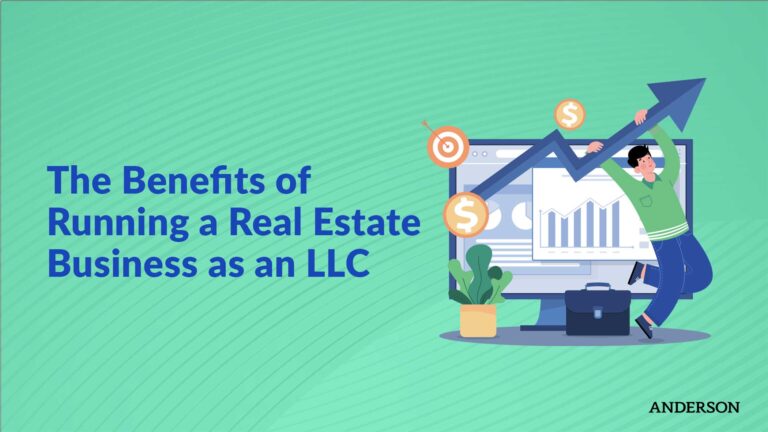If you need a loan, you might think that going to a bank is the best way to go. After all, banks and financial institutions are set up to lend money to consumers, investors, and business owners. But they aren’t the only option. Sometimes, it may make more sense to go with a private money lender. Here is how you find a private money lender.
How to Find Private Money Lenders
- Borrow Against Securities
- Establish a Business Line of Credit
- Use Assets as Collateral for Short Term Loans
Let’s briefly purview the different types of borrowers seeking out traditional loans from financial institutions. We’ll take note of their motivations and also the drawbacks of using a traditional loan.
One category of borrowers is those individuals who need to do some refinancing or debt consolidation. They typically have outstanding, sizable balances on a few different credit cards with punitive interest rates. Or they may have gone through a major life change, like a death in the family, divorce, or career change. This may have led to necessitated borrowing and perhaps legal fees. These individuals may find it easier to do debt consolidation through a bank loan or with credit card balance transfers.
Another category of borrowers is those individuals who are looking to make some type of real estate investment or start a business, but lack the capital to do so. Unfortunately, many people give up at this point, thinking that they need money to make money. If they are willing to explore the possibility of obtaining a loan, specifically a business loan from a bank, they may assume that issues like a less-than-desirable income or bad credit score can dictate their fate. However, this is far from the truth, especially if these individuals already have assets in their name.
A third category of borrowers relates to individuals who do not need a loan for a potential investment or to consolidate pre-existing debt. Rather, they seek to finance personal life milestones, like a wedding, funeral, or college tuition. Alternatively, they may also be interested in using a low-interest credit option to finance everyday living expenses.
A Summary of 3 Ways to Find Private Money Lenders
In all these cases, the traditional lender route of securing a mortgage, personal loan, business loan, refi, or credit card from the bank is often slow, onerous, and invasive. For larger loans, you will need to wait 40-60 days for the credit analyst to review your application. They will be looking at things like where you work, income, borrowing history, and tax statements. With all this in consideration, they will balance that against the risks that the bank is willing to take.
Since the 2008 housing bubble pop, traditional banks have become more restrictive about loaning money. And to top it all off, once you get that money, the loan terms and loan rate may not be as favorable and/or flexible as you’d like.
If only there was a way to get the money you need faster and with more flexible terms. That’s where private money lenders come in.
Join The Anderson Funding Community
Are you interested in funding options for your real estate deals and finding financing for your small business?
What Are Private Money Lenders?
A private money lender is an individual or company that extends a private money loan.
Traditional lenders are typically banks that are public entities. They are publicly traded and offer shares of stock on the market—think Bank of America, Wells Fargo, Citigroup, and Chase.
By contrast, a private loan is offered by an individual or a private company. Sometimes these private lenders will obtain a conventional loan from a traditional source. But the loan term or terms are not dictated by the red tape that often surrounds working with a conventional lender.
A private money lender might be a wealthy individual. They will use extra cash they aren’t using to loan some of it to potential business owners. Sometimes they offer a private loan for more personal reasons. This might include refinancing debt, pay for a life milestone, or settling an outstanding tax bill.
Alternatively, a private money lender could be a company that provides private loans for real estate financing or other investment purposes. Because these companies are not publicly funded, they can be more discriminating in their choice of clientele, and may be dedicated to exclusively working with those involved in certain investing niches, like real estate investing.
If you’re looking for opportunities to fund your real estate or business investments, consider joining the Anderson Funding Community. As a member, you’ll gain access to active funding resources and the tools to qualify.
How to Find Private Money Lenders
There are a number of ways you can find a private money lender. One of the easiest is just to ask your social circle or discuss your goals with a financial advisor or accountant.
These days, there are also peer to peer (P2P) lending platforms online. They pair private lenders with an investor or consumer looking for cash.
Here are a few common strategies that someone can use to find a private loan. Whether they have their eye on an investment property or need a loan for personal reasons.

1. Borrow Against Securities
Borrowing against securities is a strategic tactic that is available to most potential borrowers or real estate investors. It’s also known as margin lending or investing on margin. The exact details of how it works will vary between institutions. Basically, it means your brokerage will lend you cash, using your stocks, bonds, and other equities as collateral. Oftentimes they will not lend you the full value of the underlying securities that you pledge as collateral. But they may lend you 50 to 75 percent of the value. The amount that they are willing to lend may also depend on the quality of the security itself. For example, a portfolio of Blue Chip stocks has more stability and security than a portfolio of technology startups and penny stocks.
How Do Margin Loans Work?
Some brokerages have rules about what you can and can’t do with the money you obtain from margin lending. For example, some will specify that you cannot use the money to purchase more securities. Others will lend on margin specifically so you can invest in more securities. This is called investing on margin. Investors use the loaned money so they can place trades at opportune times. In these situations, investors continue to use the margin to buy and sell stocks, so as long as they keep the requisite amount of value in their portfolio and satisfy margin calls (which are essentially periodic interest payments).
A margin loan from a brokerage is not truly as private as an individual person extending their own personal capital to you. It’s also not the same as a credit card, business loan, or personal loan. What makes this loan different from a traditional bank loan is that it doesn’t appear on your credit report. Therefore you don’t need to have your credit pulled to obtain it. The collateral is right in front of the brokerage. If you default on the margin loan (or are unable to satisfy your margin call), the brokerage can liquidate your assets to satisfy the investment. The loan turnaround time is also pretty fast. In some cases, they can provide the margin instantly. There are other cases where it may take up to a week. Either way, it sure beats waiting 40-60 days for a business loan.
Who Should Consider Borrowing Against Securities?
Margin loans are perfect for individuals that have a stock portfolio of stable, traditional securities. In some cases, if your portfolio is composed of riskier investments, but you can demonstrate a history of competent management showcasing real growth (such as a portfolio owned by a successful day trader), that may compensate for the risk of the collateral. The investing borrower in question does not have to sell off stocks to get the money they need. They just have to pick up the phone and discuss margin lending with their broker. Some brokerages will even let you start this process online.
This is also a great option for savvy individuals who would like to obtain living capital instead of selling their assets. This is because, with the right broker or lender, the interest rate offered is far outpaced by the growth rate of the stocks in question. In fact, if the stocks produce dividends, the dividends alone may cover the interest rate.
2. Establish a Business Line of Credit
Going to the bank for a business loan is usually going to mean submitting lots of paperwork. You may need to produce a business plan and projection of earnings. By contrast, you can go to a private money lender for a business loan, even if your business is not yet generating income. All you really need is an EIN (tax ID number) for your business, which you can get in 10 minutes online.
This option is perfect for an investor who is flipping houses. A private lender cares more about the collateral underlying the loan rather than the creditworthiness of the borrower. It’s also a great option for investors who are just getting started or need a quick bridge loan to transition through a deal.
Keep in mind that sometimes a hard money loan (as it’s also called) can have a higher interest rate than traditional financing. You will want to enter and exit the loan quickly to save on interest charges. So, while it may not make the most financial sense for every investment, it is an option available outside the traditional loan route.
3. Use Assets as Collateral for Short Term Loans
Though it may sound a bit unusual, you can use collectibles, art, and other assets that grow in value as collateral. Of course, if you default on the loan, the hard money lender will get to collect the Ferrari, wine cellar, or first-edition Pokémon cards you have offered as a security pledge.
In many cases, these types of loans are going to be short term loans. That’s because there is a degree of risk involved with the collateral, since it is subject to damage, loss, or theft (as opposed to loans secured with securities, which can be quickly settled by selling the stocks, bonds or shares in the portfolio).
Tangentially, this is one good reason why it’s a good idea to have collections of value, such as jewelry, artwork, or baseball cards, professionally appraised on a regular basis. A certificate of appraisal is something you can use as paper evidence that these items have value, and it can easily be used as proof of collateral to secure hard money loans.
Wondering how to can secure this type of unique loan? Start with someone within your own business and investment network. You can also ask your financial advisor or tax advisor if they have any connections.
What Do Private Money Lenders Look For?
Private money lenders are most interested in the collateral you offer. This distinguishes them from traditional financial institutions. The traditional institutions are mostly interested in the borrower and their personal work history and credit history.
A traditional bank lender will want to know your job, historical annual income, and credit history. Private lenders may care about that as well, but they will certainly care less. This is because bank lenders are more constricted in terms of legally collecting collateral to satisfy their debt.
For instance, if you skip a mortgage payment for a few months. The bank will go into the foreclosure process, which could last for months. Then they will have to go through the process to evict you. All the while maintaining the property against damage and illegal occupancy and selling the property to minimize their losses.
Compare this to a private lender who gives you $100,000, agreeing to extend the loan in exchange for a Porsche. If you don’t repay the loan, they will have a much easier time taking the vehicle than the bank will in terms of taking your home.
What Are the Benefits of Private Money Loans?
Private lenders are more interested in the value of the collateral than your personal financial history. They don’t need to spend as much time evaluating the pros and cons of extending a loan. That speed of loan origination is one of the biggest benefits of private lending. Especially in the world of investing where moves need to happen right away or a deal could be lost.
Private money lenders often have more flexible loan terms. This is because it’s just you and a private lender working out the deal. A bank, by contrast, will have fixed policies and procedures in place that you cannot change.
Another benefit to private money loans and margin lending is that it does not go on your personal credit history. This can be of huge benefit in terms of securing other loans in the future, especially if (for whatever reason) you miss payments or default on the loan entirely.
Private money lenders often provide loans for things a bank won’t loan money for. For example, the bank is happy to lend you money to buy your own primary residence. You have a vested interest in this property, ergo a roof over your head. And as such, the bank makes a reasonable assumption that you’re going to take care of the property. But when you go to the bank for a loan on a second, third, or fourth property, they become increasingly reluctant to give you the money because each investment property becomes riskier. It is obvious that these additional properties are for investment purposes. And it’s always possible for investments to fail, and much easier for business owners to walk away from a failing endeavor. As such, when you reach this point in growing your real estate portfolio, you will more than likely need to seek out private money.
Private Money Lenders are More Flexible Than Traditional Loans
Traditional loans offered by banks will have you jumping through a series of hoops in order to get the money you need. And if you’re trying to secure quick funding to invest in real estate or need cash to pay small business taxes, you may not have the time to go through the process.
However, it really doesn’t take much effort to find a private lender. And working with a private lender that can offer quick loans with a greater degree of flexibility is often a more attractive option because private lenders tend to care more about the collateral than the creditworthiness or income of a borrower.
There is a saying among the financially savvy about using personal assets to secure other people’s money: buy, borrow, and die. Though the phrase sounds morbid, its true implication is that you don’t need to sell your assets in order to secure the cash you need, you just need to leverage what you already have. This is something consumers and investors should particularly pay attention to today in the climate of rampant inflation we are seeing.
As always, take advantage of our free educational content and every other Tuesday we have Toby’s Tax Tuesday, a great educational series. Our Structure Implementation Series answers your questions about how to structure your business entities to protect you and your assets.
Additional Resources:
- Claim your FREE Strategy Session, and learn how Anderson Advisors can protect your assets.
- Join our next Tax & Asset Protection event to learn more advanced tax minimization & entity structuring strategies
- For all things investing, check out the Infinity Investing YouTube channel
- Subscribe to our YouTube channel to make sure you never miss the latest strategies & updates
Bonus Video
Join The Anderson Funding Community
Are you interested in funding options for your real estate deals and finding financing for your small business?











